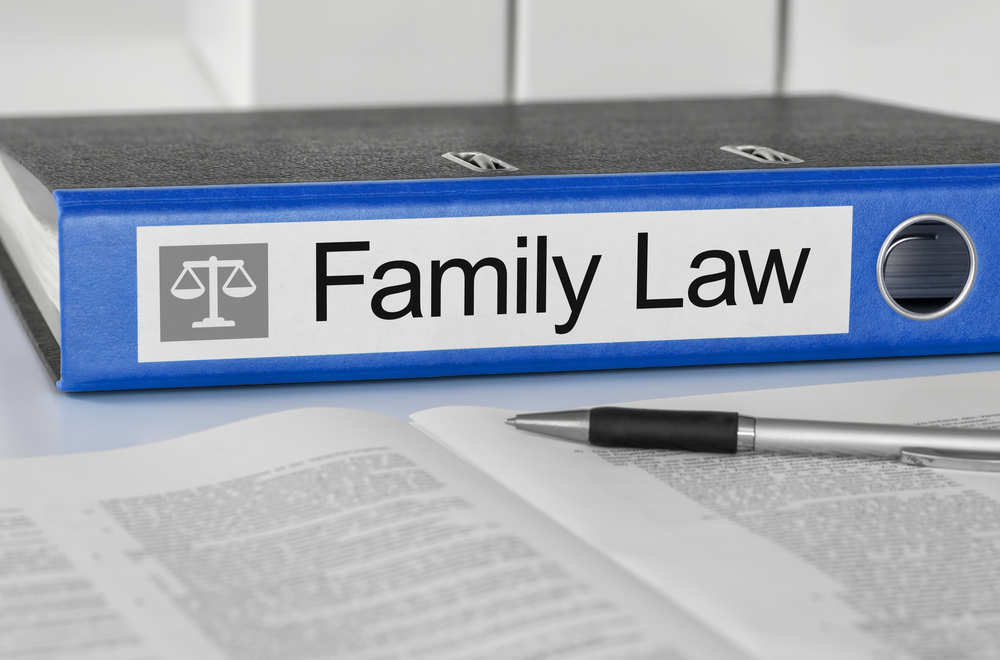Failure to Provide Evidence of the Value of Property in an Arizona Divorce

Table of Contents
In McClellon v. McClennon 464 P.2d 982 (1970) the Arizona Court of Appeals considered various property division issues, including effect of a failure to provide evidence of the value of property in an Arizona divorce.
Facts of the Case
Mrs. McClellon and Mr. McClellon married in Arizona. After 25 years of marriage, they divorced. The trial court granted the divorce and divided the community property.
It awarded Dorothy child support of $200 a month and alimony of $1,250 a month. It also ordered $200 to be withheld from her alimony every month by her husband to be paid by him to cover her share of the community debt.
From the property division, Mrs. McClellon appealed.

Comparing Husband and Wife’s Awards of Community Property
On appeal, the wife claimed that the court gave the husband three times as much community property as it gave her. She claimed that the valuation of several items was wrong. However, she did not dispute the values of that property at the time of trial. Therefore, she cannot argue about the valuation of the automobiles and jewelry in an appeal.
Mrs. McClellon did timely question the negative value given to the Stanford Drive property (“home”) in the sum of $1,534.00 and the valuation of husband’s law firm’s capital account at $11,428.00. Specifically, the trial court found the home was worth less than what was owed on it, awarded the home to the husband, then deducted the negative equity from the value assets awarded to the husband.

Capital Account
Regarding the husband’s law firm’s capital account figure, the wife claims the court did not take into consideration his accounts receivable. However, she did not offer any evidence of the amount in the accounts receivable to the trial court. Had she done so, the trial court could have awarded her half of the accounts receivable owed to the husband.
If Mrs. McClellon believed that the $11,428 did not represent her half of that capital account because it allegedly did not include his account receivables for his law firm, she had to present evidence at trial. She did not do so.
Stanford Drive Property: Motion for New Trial

The lower court did not divide the Stanford Drive property as community property. It found that the couple held this property in joint tenancy with the right of survivorship.
The wife moved for a new trial. She based the motion on newly discovered evidence: the proprietary lease on the Stanford Drive apartment.
She now claims that this lease shows that the property was community property, not joint tenancy property.
Arizona law allows for a new trial based on newly discovered evidence. However, “new” evidence can only be evidence that could not have been discovered with reasonable diligence before the trial.
The Court said that the wife, herself, had introduced the stock certificate to the cooperative apartments as trial evidence. Normally, the certificate should have contained language that the parties knew their rights to hold the stock as community property. It did not have that language.
This should have been enough to raise a question in Mrs. McClellon’s mind about the property status. She could have discovered before trial the lease showing that the property was not held in joint tenancy with the right of survivorship. Moreover, the Court said, the wife argued at trial that the property was held in joint tenancy with the right of survivorship. A party may not take a new position on a motion for a new trial which is inconsistent with one she took at trial.
Disposition

The Court of Appeals affirmed the decision of the trial court. The ruling, in this case, was subsequently distinguished by the Arizona Court of Appeals in the Czarnecki v. Czarnecki case.
If you need information about the equitable division of community property in an Arizona divorce, you should seriously consider contacting the attorneys at Hildebrand Law, PC. Our Arizona divorce attorneys have decades of combined experience successfully representing clients in divorce cases in Arizona.
Our family law firm has earned numerous awards such as US News and World Reports Best Arizona Family Law Firm, US News and World Report Best Divorce Attorneys, “Best of the Valley” by Arizona Foothills readers, and “Best Arizona Divorce Law Firms” by North Scottsdale Magazine.
Call us today at (480)305-8300 or reach out to us through our appointment scheduling form to schedule your personalized consultation and turn your Arizona divorce case around today.
Contact Form
Other Articles About Divorce Laws in Arizona
- PHANTOM INCOME IN A DIVORCE IN ARIZONA
- BUYING A HOUSE DURING A DIVORCE IN ARIZONA
- INTERNATIONAL DIVORCE IN ARIZONA
- PROTECT YOURSELF DURING A DIVORCE IN ARIZONA
- MOVING OUT OF THE HOUSE DURING A DIVORCE IN ARIZONA
- ASKING YOUR SPOUSE FOR A DIVORCE IN ARIZONA
- WHAT HAPPENS TO EMBRYOS IN A DIVORCE IN ARIZONA
- WHAT SHOULD I DO BEFORE FILING FOR DIVORCE IN ARIZONA
- HOW SHOULD A MAN PREPARE FOR DIVORCE
- LATE DISCLOSURE OF EXPERT WITNESS REPORTS IN AN ARIZONA DIVORCE
- CAN YOU SELL PROPERTY BEFORE A DIVORCE IN ARIZONA
- HOW TO ASK YOUR SPOUSE FOR A DIVORCE IN ARIZONA
- HOW DIVORCE CAN IMPACT SOCIAL SECURITY BENEFITS
- IS IT SMART TO BUY A HOUSE AFTER A DIVORCE
- WHEN A DIVORCE IS FINAL IN ARIZONA
- EFFECT OF CHANGING JUDGES DURING A DIVORCE
- FAILURE TO SIGN VERIFICATION OF DIVORCE FORM IN ARIZONA
- ENFORCING A PROMISE IN A DIVORCE IN ARIZONA
- SELLING A HOUSE DURING A DIVORCE IN ARIZONA
- DIVORCING A NARCISSIST IN ARIZONA
- CAN A JUDGE REJECT A DIVORCE SETTLEMENT IN ARIZONA
- NARCISSIST DIVORCE ADVICE IN ARIZONA
- HOW TO WORK EFFECTIVELY WITH AN ATTORNEY WHEN YOU DIVORCE A NARCISSIST
- FINDING THE RIGHT DIVORCE ATTORNEY: SECURE THE BEST REPRESENTATION FOR YOUR CASE
- DIVORCE TIPS IN ARIZONA
- DIVIDING CONTINGENCY FEES IN A DIVORCE IN ARIZONA
- TIPS ON HIRING A DIVORCE LAWYER
- AWARD OF MONEY IN AN ARIZONA DIVORCE
- DIFFERENCE BETWEEN A COMPLETE AND PARTIAL DIVORCE AGREEMENT
- WHAT TO DO IF YOUR SPOUSE IS HIDING ASSETS IN A DIVORCE IN ARIZONA
- INTEREST ON A JUDGMENT IN AN ARIZONA DIVORCE
- INTEREST ON A JUDGMENT IN AN ARIZONA DIVORCE DECREE
- MISSED COURT DATE IN AN ARIZONA DIVORCE
- WHAT HAPPENS IF SOMEONE LIES IN A DIVORCE IN ARIZONA
- VALUING A HOUSE DURING A DIVORCE IN ARIZONA
- TRAUMATIC STRESS AND DIVORCE IN ARIZONA
- TAXES AND DIVORCE SETTLEMENTS IN ARIZONA
- STATUTE OF LIMITATIONS ON A DIVORCE DECREE IN ARIZONA
- AUTHORITY OF DIVORCE COURTS TO REQUIRE A RELIGIOUS DIVORCE
- VALUING A PENSION PLAN IN A DIVORCE IN ARIZONA
- ENFORCING A PREMARITAL AGREEMENT IN A DIVORCE IN ARIZONA
- CHANGING POSITIONS DURING A DIVORCE TRIAL IN ARIZONA
- FALSE ACCUSATIONS OF DOMESTIC VIOLENCE IN AN ARIZONA DIVORCE
- DENIAL OF SPOUSAL SUPPORT AS A SANCTION IN AN ARIZONA DIVORCE
- VALIDITY OF A MARRIAGE IN ARIZONA WHEN THE MARRIAGE LICENSE IS NOT FILED
- WAIVER OF DIVORCE MEDIATION CONFIDENTIALITY IN ARIZONA
- GUIDE TO DIVORCE FOR MEN
- WHAT TO DO WHEN SERVED WITH DIVORCE PAPERS
- WHAT SHOULD I DO BEFORE FILING DIVORCE IN ARIZONA
- WHAT REASONS DO I NEED TO OBTAIN A DIVORCE IN A COVENANT MARRIAGE IN ARIZONA
- WHAT IS A TEMPORARY ORDERS HEARING IN ARIZONA
- WHAT IS A PRELIMINARY INJUNCTION IN AN ARIZONA DIVORCE
- WHAT IS A FAMILY LAW MASTER IN AN ARIZONA DIVORCE CASE
- HOW TO TELL IF YOUR SPOUSE IS HIDING ASSETS IN AN ARIZONA DIVORCE
- WHAT IS A DEFAULT DIVORCE IN ARIZONA
- THE DEFINITIVE GUIDE TO THE 8 STEPS OF THE ARIZONA DIVORCE PROCESS
- WHAT IS A COVENANT MARRIAGE IN ARIZONA
- WHAT HAPPENS IF MY DIVORCE CASE GOES TO TRIAL IN ARIZONA
- WHAT HAPPENS AT A TEMPORARY ORDERS HEARING IN ARIZONA
- WHAT HAPPENS AT A RESOLUTION MANAGEMENT CONFERENCE IN ARIZONA
- WHAT DOES IT MEAN WHEN YOUR DIVORCE CASE IS ON THE INACTIVE CALENDAR
- STOP AN ARIZONA DIVORCE
- SOCIAL MEDIA EVIDENCE IN AN ARIZONA DIVORCE
- SHOULD I KEEP THE HOUSE IN A DIVORCE IN ARIZONA
- 7 DOCUMENTS YOU NEED TO FILE FOR DIVORCE ARIZONA
- SERVING DIVORCE PAPERS BY PUBLICATION IN ARIZONA
- WHAT DO I DO IF I AM SERVED WITH DIVORCE PAPERS
- SELLING COMMUNITY PROPERTY DURING A DIVORCE IN ARIZONA
- SEALING COURT RECORDS IN AN ARIZONA DIVORCE
- RUNNING OUT OF TIME DURING A FAMILY LAW TRIAL IN ARIZONA
- REASONS TO FILE FOR DIVORCE IN ARIZONA
- QUICK DIVORCE IN ARIZONA
- PARENTING CLASS DURING A DIVORCE IN ARIZONA
- WHAT IS A NO FAULT DIVORCE IN ARIZONA
- MODIFYING A DIVORCE DECREE IN ARIZONA
- MISLED INTO SIGNING A DIVORCE SETTLEMENT IN ARIZONA
- MERGER OR INCORPORATION OF A SETTLEMENT AGREEMENT IN ARIZONA
- MARITAL SETTLEMENT AGREEMENTS IN ARIZONA
- UNCONTESTED DIVORCE IN ARIZONA
- HOW TO OBTAIN A DIVORCE AFTER A LEGAL SEPARATION IN ARIZONA
- HOW TO GET AN AMICABLE DIVORCE IN ARIZONA
- SAME SEX DIVORCE IN ARIZONA
- UNREASONABLE DELAY IN CONTESTING PATERNITY IN AN ARIZONA DIVORCE
- HOW TO GET A DIVORCE IN ARIZONA WHEN YOU CANNOT FIND OR LOCATE YOUR SPOUSE
- HOW DO I FIND A GOOD DIVORCE ATTORNEY IN ARIZONA
- HOW TO APPEAL A DIVORCE DECREE IN ARIZONA
- HOW MUCH DOES A DIVORCE COST IN ARIZONA
- HOW LONG DOES AN UNCONTESTED DIVORCE TAKE IN ARIZONA
- HOW LONG DOES IT TAKE TO GET TEMPORARY ORDERS IN AN ARIZONA DIVORCE CASE
- HOW LONG DOES A CONTESTED DIVORCE CASE TAKE IN ARIZONA
- HOW LONG DO YOU HAVE TO BE SEPARATED BEFORE DIVORCE IN ARIZONA
- HOW IS A DIVORCE FINALIZED IN ARIZONA
- HIGH NET WORTH DIVORCE IN ARIZONA
- HIGH CONFLICT DIVORCE IN ARIZONA
- HIGH ASSET DIVORCE IN ARIZONA
- FAILURE TO INCLUDE AN ISSUE IN AN ARIZONA DIVORCE
- DOMESTIC VIOLENCE AND DIVORCE IN ARIZONA
- DO ARIZONA COURTS OFFER SERVICES TO SAVE A MARRIAGE
- DIVORCE STATISTICS IN ARIZONA
- DIVORCE IN ARIZONA WITHOUT CHILDREN
- DIVORCE COURT JURISDICTION ARISES FROM STATUTES IN ARIZONA
- DIVORCE AND CHILDREN IN ARIZONA
- DISSOLUTION OF MARRIAGE IN ARIZONA: STEPS TO DISSOLVE A MARRIAGE
- DISMISSAL OF AN APPEAL FOR NOT OBEYING ORDERS IN A DIVORCE IN ARIZONA
- CUSTODY OF THE FAMILY PET IN A DIVORCE IN ARIZONA
- COPING WITH DIVORCE IN ARIZONA
- CAN I CONVERT MY MARRIAGE TO A COVENANT MARRIAGE
- CONCILIATION COURT SERVICES IN ARIZONA
- COMPLEX DIVORCE CASES IN ARIZONA
- COLLEGE EXPENSES AFTER DIVORCE IN ARIZONA
- CHANGE TO MAIDEN NAME AFTER DIVORCE IN ARIZONA
- CAN MY SPOUSE BE ORDERED TO PAY MY ATTORNEY FEES
- CAN I STOP A DIVORCE IN ARIZONA IF I CHANGE MY MIND
- CAN I REPRESENT MYSELF IN AN ARIZONA DIVORCE CASE
- ARIZONA MILITARY DIVORCE LAWS: THE 10/10 RULE, FINANCIAL SUPPORT AND MORE
- ARIZONA DIVORCE DEBT
- ARE PRENUPTIAL AGREEMENTS ENFORCEABLE IN ARIZONA
- EFFECTS OF DIVORCE ON CHILDREN
- ADVANTAGE OF FILING FOR DIVORCE FIRST IN ARIZONA
- WHAT IS ALTERNATIVE DISPUTE RESOLUTION IN ARIZONA
- FIVE THINGS TO DO TO PREPARE FOR DIVORCE MEDIATION IN ARIZONA
- APPEALING AN ARBITRATION AWARD IN A DIVORCE IN ARIZONA
- EIGHT WAYS YOUR SPOUSE CAN HIDE THEIR INCOME BEFORE DIVORCE IN ARIZONA
- FAILURE TO INCLUDE AN ISSUE IN A PRETRIAL STATEMENT IN ARIZONA
- THE VALUATION OF A LAW PRACTICE IN A DIVORCE IN ARIZONA
- OPENING BRIEF IN AN ARIZONA FAMILY LAW APPEAL
- WHEN IS MEDIATION A GOOD IDEA
- MENTAL ILLNESS AND THE FAMILY COURT SYSTEM IN ARIZONA
- DIVORCE IN ARIZONA: SIX THINGS TO KNOW ABOUT A DIVORCE IN ARIZONA
- WHAT DOCTORS SHOULD KNOW ABOUT DIVIDING ASSETS IN A DIVORCE IN ARIZONA
- WHAT IS A RULE 69 AGREEMENT IN ARIZONA
- UPDATING YOUR ESTATE PLAN FOLLOWING A DIVORCE IN ARIZONA
- THE RISING TREND OF GREY DIVORCE IN ARIZONA
- THE DEFINITIVE GUIDE TO DEALING WITH A SURPRISE DIVORCE
- WHAT TO DO IF YOUR WIFE OR HUSBAND WANTS A DIVORCE IN ARIZONA
- EIGHT FINANCIAL MISTAKES TO AVOID WHEN GOING THROUGH A DIVORCE IN ARIZONA
- REIMBURSEMENT FOR PAYING COMMUNITY BILLS IN AN ARIZONA DIVORCE
- EFFECT OF FILING AN AFFIDAVIT OF FINANCIAL INFORMATION WITH THE COURT IN ARIZONA
- DIVORCE SUCKS: DECIDING TO DIVORCE IN ARIZONA
- DOMICILE AND RESIDENCY RULES IN AN ARIZONA DIVORCE
- SERVICE BY EMAIL IN AN ARIZONA DIVORCE
- LODGING A CONSENT DECREE IN AN ARIZONA DIVORCE
- SANCTIONS FOR FILING FRIVOLOUS DOCUMENTS IN AN ARIZONA DIVORCE
- FILING A LATE APPLICATION FOR ATTORNEY FEES IN AN ARIZONA FAMILY LAW CASE
- DISMISSAL OF AN INTERNATIONAL DIVORCE IN ARIZONA
- REQUEST TO CONTINUE A DIVORCE TRIAL IN ARIZONA TO RETAIN AN ATTORNEY
- WHEN DIVORCE IS THE RIGHT CHOICE IN ARIZONA
- IS DIVORCE THE BEST OPTION IN ARIZONA
- WHEN YOU SHOULD FILE FOR BANKRUPTCY BEFORE A DIVORCE
- HOW TO PRESERVE CLAIMS FOR AN ARIZONA FAMILY LAW APPEAL
- BLAMING YOUR DIVORCE ATTORNEY CAN WAIVE THE ATTORNEY-CLIENT PRIVILEGE
- MANDATORY SANCTIONS IN AN ARIZONA FAMILY LAW CASE
- JUDGE FAILING TO RULE ON A DIVORCE ISSUE IN AN ARIZONA DIVORCE
- HOW TO FIX AN ERROR IN A FAMILY LAW CASE IN ARIZONA
- LAW OF THE CASE DOCTRINE IN A DIVORCE IN ARIZONA
- HEARING TO CONTEST A RULE 69 AGREEMENT IN ARIZONA
- CORRECTING A MISTAKE IN AN ARIZONA DIVORCE DECREE
- CHANGING ATTORNEYS DURING A DIVORCE IN ARIZONA
- THE EFFECT OF THE 2017 TAX BILL ON DIVORCE
- SAVE MONEY ON DIVORCE ATTORNEY FEES IN ARIZONA
- QUESTIONS TO ASK A DIVORCE LAWYER IN ARIZONA
- OPTIONS FOR BUSINESS OWNERS GOING THROUGH A DIVORCE IN ARIZONA
- WHAT TO DO DURING A DIVORCE IN ARIZONA
- COLLECTING ATTORNEY FEES ON A JUDGMENT IN AN ARIZONA DIVORCE
- FOR THE NEWLY DIVORCED
- DIVORCING A DRUG ADDICT IN ARIZONA
- DIVORCING AN ALCOHOLIC IN ARIZONA
- DUTY OF CANDOR IN A DEFAULT DIVORCE IN ARIZONA
- SETTING ASIDE OR MODIFYING A DIVORCE DECREE IN ARIZONA
- IMPORTANCE OF CONSULTING A FINANCIAL PLANNER BEFORE A DIVORCE IN ARIZONA
- SOMATIC SYMPTOM DISORDER IN A DIVORCE IN ARIZONA
- DEALING WITH A LIAR IN A DIVORCE
- PARANOID PERSONALITY DISORDER IN A DIVORCE IN ARIZONA
- PERSONALITY DISORDERS IN A DIVORCE IN ARIZONA
- DISSOCIATIVE DISORDER AND DIVORCE IN ARIZONA
- OBSESSIVE COMPULSIVE PERSONALITY DISORDER AND DIVORCE IN ARIZONA
- COPING WITH ANXIETY DURING A DIVORCE IN ARIZONA
- DIVORCING A DEPRESSED SPOUSE IN ARIZONA
- DIVORCING A PSYCHOPATH IN ARIZONA
- DIVORCING SOMEONE WITH A MENTAL ILLNESS IN ARIZONA
- DIVORCING A BIPOLAR SPOUSE IN ARIZONA
- PROBLEMS WITH AGGRESSIVE DIVORCE LAWYERS IN ARIZONA
- HOW TO DEAL WITH AN AGGRESSIVE DIVORCE LAWYER IN ARIZONA
- DIFFERENCES BETWEEN AN ANNULMENT AND DIVORCE IN ARIZONA
- WHEN MEDIATION IS A BAD IDEA
- SITUATIONS BEST FOR DIVORCE MEDIATION IN ARIZONA
- ALTERNATIVES TO DIVORCE AND LEGAL SEPARATION IN ARIZONA
- CONTESTED VERSUS UNCONTESTED DIVORCES IN ARIZONA
- ATTORNEY’S CONFLICT OF INTEREST IN AN ARIZONA DIVORCE
- TIME LIMIT TO ENFORCE A DIVORCE DECREE IN ARIZONA
- SANCTIONS AGAINST AN ATTORNEY FOR LEGAL MALPRACTICE IN ARIZONA
- ESTABLISHING EXTRINSIC FRAUD IN AN ARIZONA DIVORCE
- UNENFORCEABLE PROVISIONS IN A MARITAL SETTLEMENT AGREEMENT
- CORROBORATION REQUIRED IN AN ARIZONA FAULT DIVORCE
- ENFORCING AN UNSIGNED DIVORCE SETTLEMENT AGREEMENT
- CHANGING JUDGES IN AN ARIZONA DIVORCE
- JURISDICTION OVER PROCEDURAL ISSUES IN AN ARIZONA DIVORCE
- APPEALING TEMPORARY ORDERS IN ARIZONA
- HOW TO DEAL WITH A HOSTILE PARENT IN ARIZONA
- SANCTIONS FOR FILING A MOTION TO COMPEL LATE DISCOVERY IN ARIZONA
- DISQUALIFICATION OF AN ATTORNEY IN AN ARIZONA DIVORCE
- FAILURE TO FILE A MARRIAGE LICENSE IN ARIZONA
- LATE DISCLOSURE OF EVIDENCE IN AN ARIZONA DIVORCE CASE
- PROTECTING CHILDREN FROM A HOSTILE PARENT DURING A DIVORCE IN ARIZONA
- HOW DIVORCE AFFECTS CHILDREN IN ARIZONA
- ARIZONA INDUSTRIAL COMMISSION MUST RECOGNIZE A COURT’S RULING ON MARITAL STATUS
- DOES DEATH OF A SPOUSE PREVENT A JUDGE FROM ISSUING A DIVORCE DECREE IN ARIZONA
- HOW PERSONAL INJURY CLAIMS CAN AFFECT YOUR MARITAL RELATIONSHIP
- RATIFICATION OF A VOIDABLE MARRIAGE IN ARIZONA
- HOW TO PREPARE FOR DIVORCE MEDIATION IN ARIZONA
- WHY MEDIATE YOUR DIVORCE IN ARIZONA
- ARIZONA DIVORCE LAW FAQ
- COLLABORATIVE DIVORCE: EXPLORING THE BENEFITS OF COLLABORATIVE DIVORCE IN ARIZONA
- CHANGE OF JUDGE AFTER A SPECIAL ACTION APPEAL IN ARIZONA
- DIVORCE MEDIATION IN ARIZONA: HOW TO SIMPLIFY YOUR DIVORCE
- ARIZONA RULE OF FAMILY LAW PROCEDURE 2B
- ARIZONA ANNULMENT OF MARRIAGE LAWS
